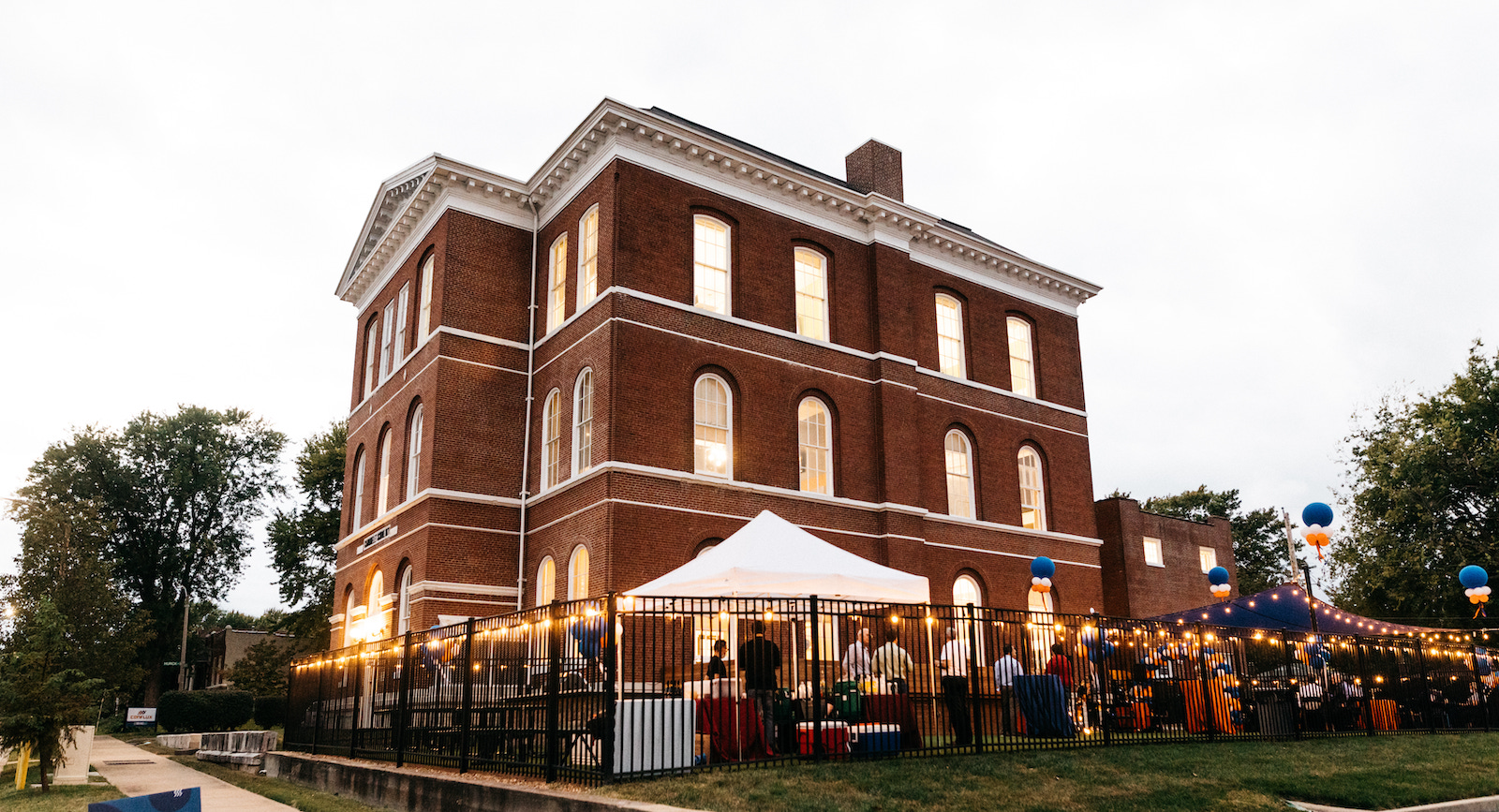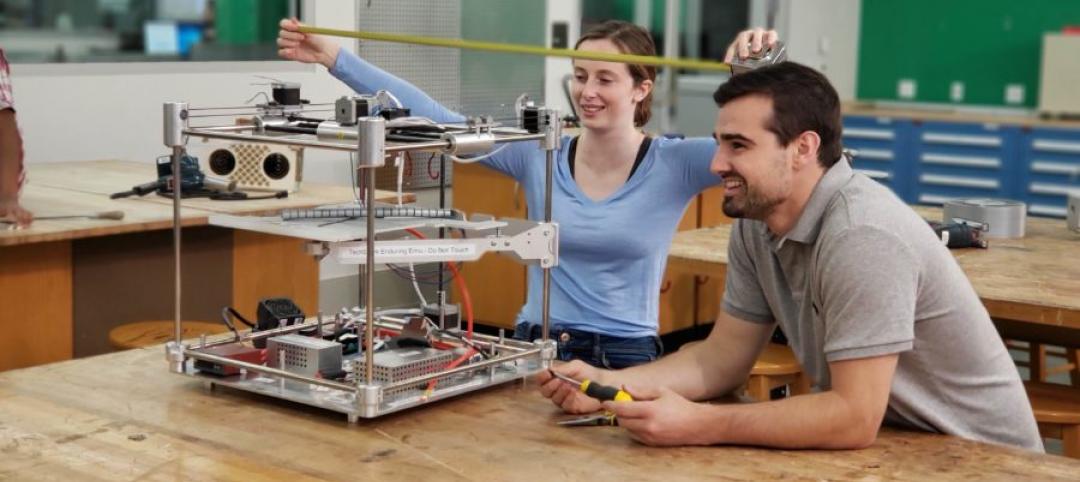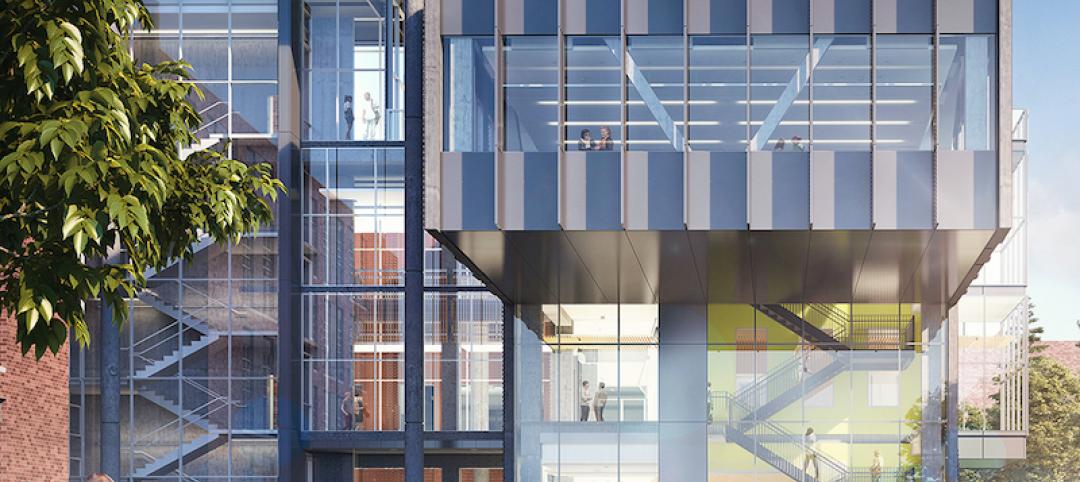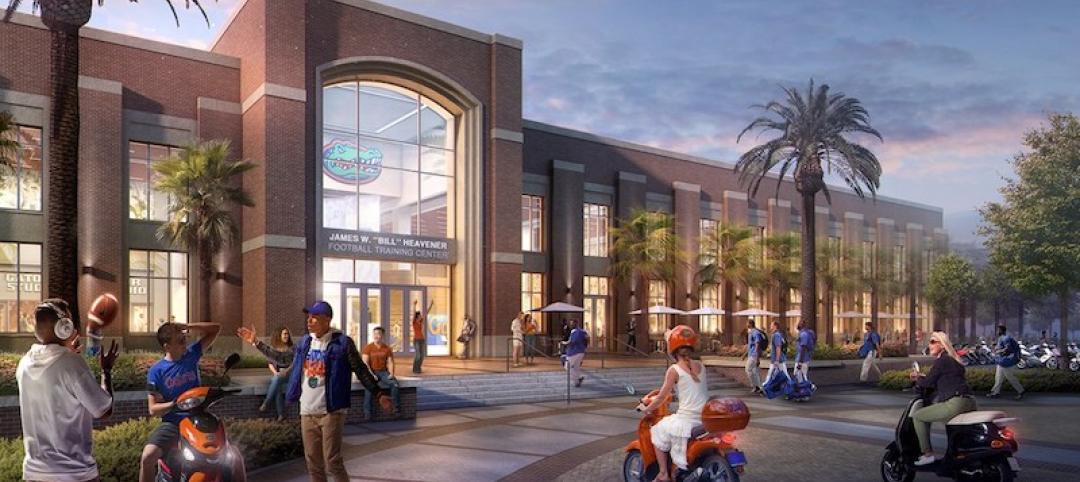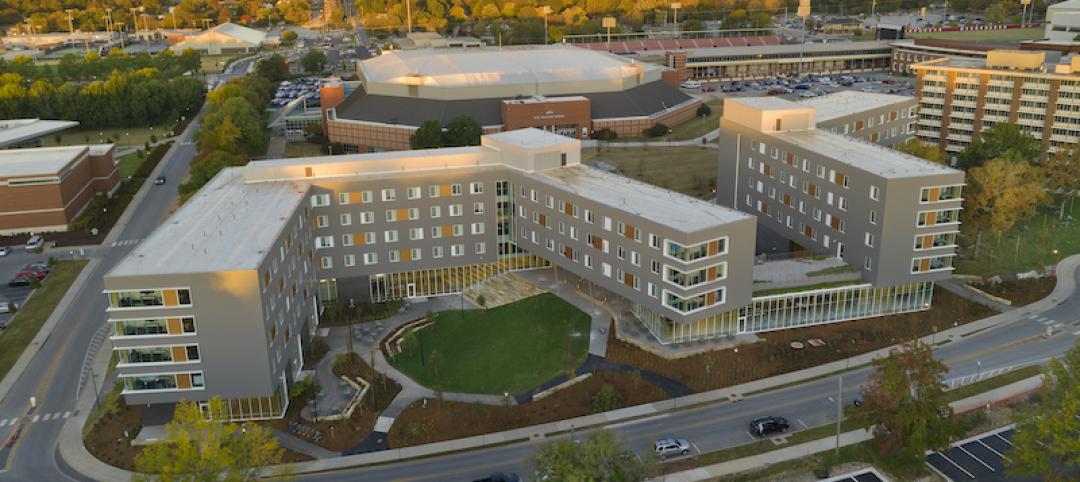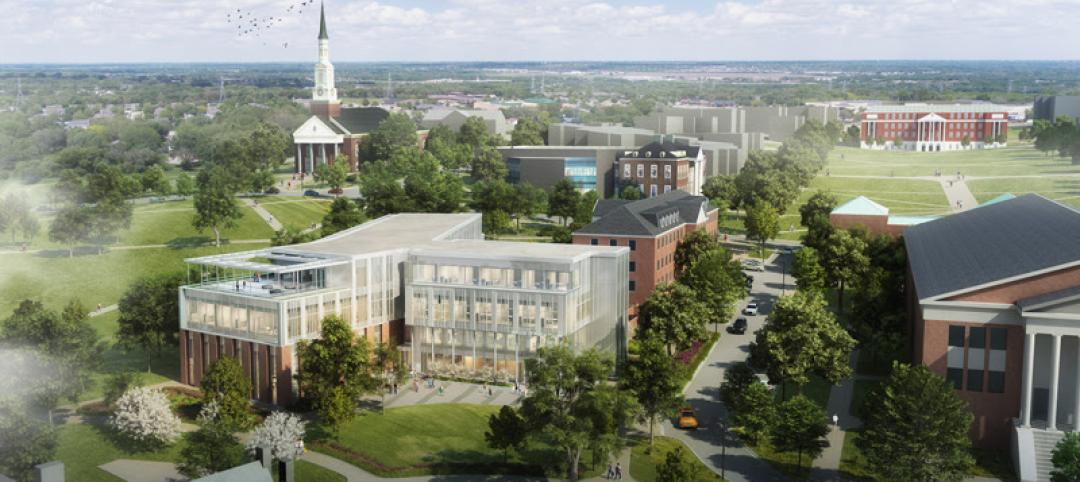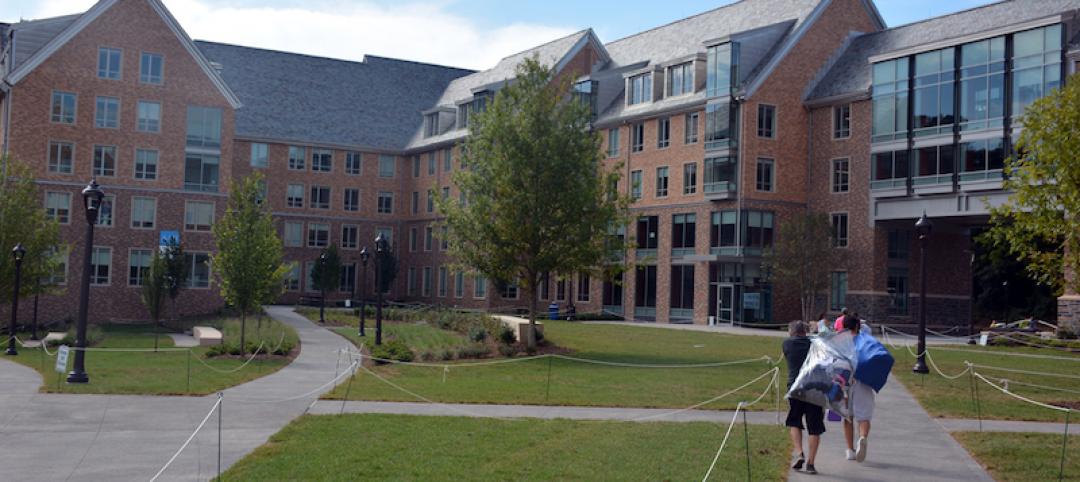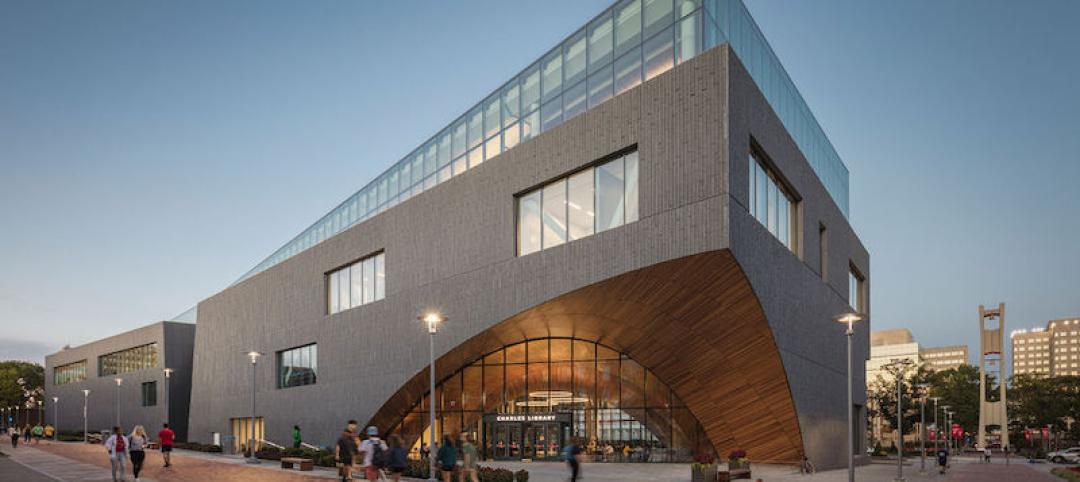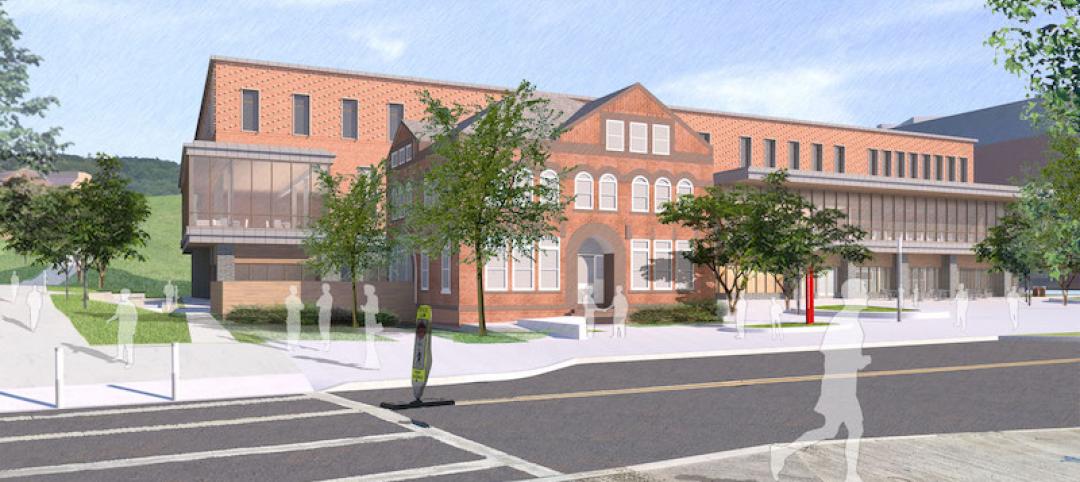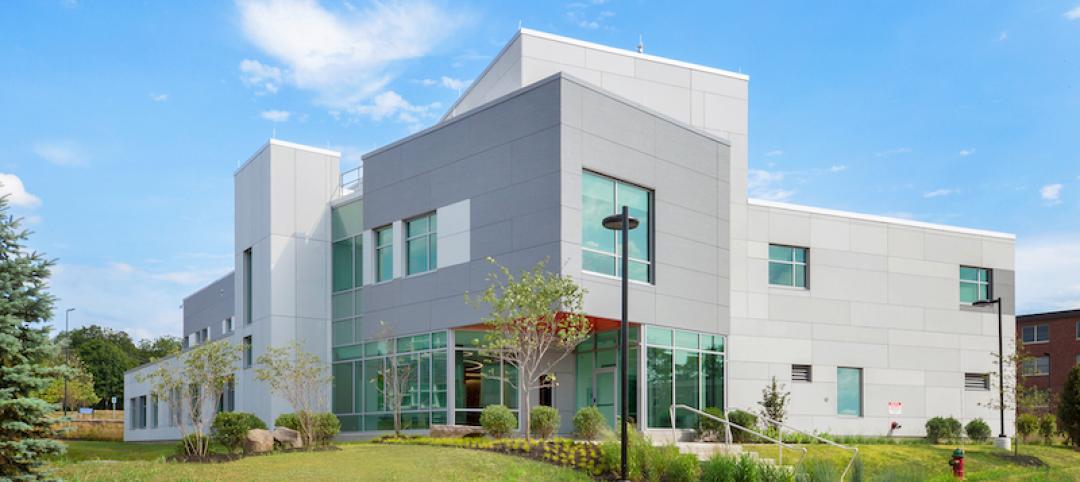In 1871, The Carondelet School, designed by Frederick William Raeder, opened to educate more than 400 children of laborers and manufacturers in St. Louis. It operated for a century before closing in 1976; it subsequently served as a private Christian school before going dark again in the 2000s.
The building is getting a second lease on life, as it has undergone a $2 million renovation by goBRANDgo!, a marketing firm for the manufacturing and industrial sectors, which moved its headquarters from Benton Park, as well as Conflux Co-Learning, goBRANDgo!’s nonprofit incubator, for what’s being called the nation’s first co-learning space where manufacturers and distributors can collaborate and share best practices.
GoBRANDgo! acquired the school in 2019 and launched Conflux a year later, soon after which it started hosting roundtables, webinars, and sharing information. The 26,000-sf Conflux Co-Learning building, with three stories and a basement, officially reopened last November, although some construction had yet to be completed at presstime. Financed with SBA 504 loans for small businesses, the renovation is adding an innovation lab, recording studio, and six teleconference rooms. GoBRANDgo!’s target is for Conflux Co-Learning to have 30 members by the end of 2022, and 100 within the next three years, according to Brandon Dempsey, a Partner with goBRANDgo!.
Right now, Conflux’s educational and collaborative programming is open to the industry. When BD+C spoke with Dempsey in mid-December, Conflux Co-Learning had just conducted a roundtable of 18 manufacturers and distributors on the topic of labor shortages. goBRANDgo! expected to have its first 10 members signed up by February 2022. Membership is $1,000 per month, and is currently confined to midsize companies with annual revenue of between $25 million and $250 million. Dempsey says that because the member companies, by and large, won’t compete, they will be freer to share information about how to drive sales, reduce waste, decrease costs, diversify their customer base, roll out new products, and cope with economic fluctuations.
Conflux Co-Learning also plans a series of guest speakers on a variety of topics relevant to its members’ businesses and growth. The center’s programming is being managed by Matt Menietti, goBRANDgo!’s Executive Director, who most recently served as Director of Innovation & Entrepreneurship for the St. Louis Regional Chamber.
In an interview with Entrepreneur Quarterly, Menietti characterized many of the companies that goBRANDgo! works with as “bedrocks of their communities.” The goal of Conflux Co-Learning, he explained, is “to bring these players together and provide them with meaningful content, relationships, and a community of support to help them thrive.”
Menietti said his organization has had discussions with industry leaders about workforce development. Dempsey elaborates that goBRANDgo! intends to launch an apprenticeship program that members could avail themselves of within the next two years.
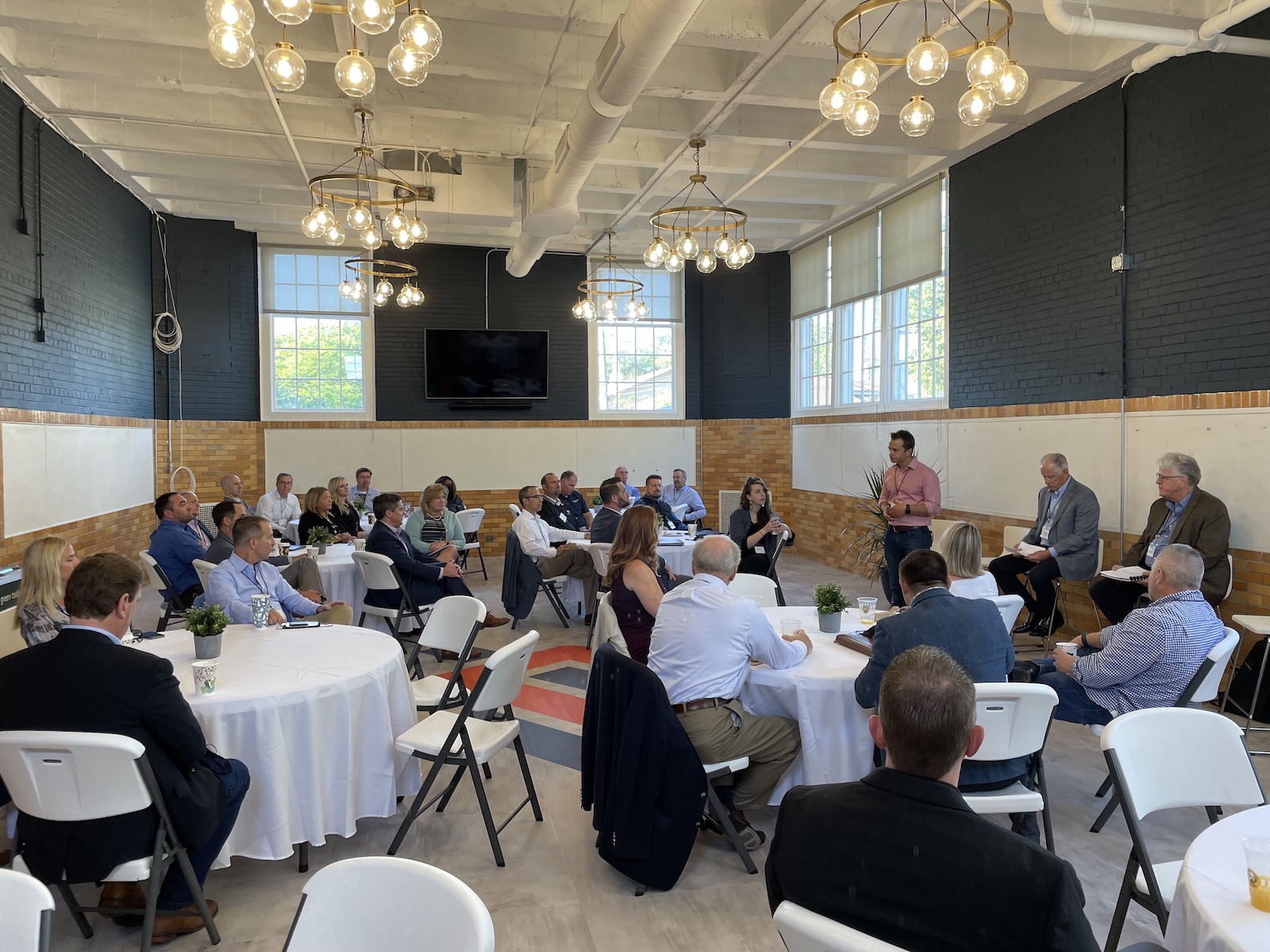
The team that renovated The Carondelet School included Eversoldt & Associates (architect), ReSTL Development (developer and CM), and PAP Engineering (engineer). The scope of the project included repainting the interior and upgrading some of the electrical and HVAC systems. The renovation focused on repurposed and reclaimed materials: Conflux recovered more than 50 tables and chairs from the demolition of the Missouri Botanical Gardens’ Ridgeway Visitor Center, and constructed more tables using reclaimed building materials from that demo.
The biggest part of the renovation, says Dempsey, was removing seven layers of flooring—held down by 650,000 nails, staples, and brads—and restoring the building’s hardwood flooring, more than 2,000 sf of which was built by hand.
Dempsey says he’s getting emails “every day” from companies that want to become Conflux members. The owner of a large, local pasta supplier recently toured Conflux Co-Learning and thought his company could hold its annual meetings there. If Conflux hits 50 members within a reasonable timeframe, Dempsey says he’ll know the concept is working, at which point he would consider expanding Conflux Co-Learning to other manufacturing/distribution hubs like Kansas City, Denver, and Nashville.
Related Stories
University Buildings | Jan 6, 2020
Making it: Gen Z learns by doing
This fundamental shift in learning style will have an impact on higher-education space planning.
University Buildings | Dec 17, 2019
Two LMN Architects-designed academic science buildings move forward for completion next year
These facilities will bring several disciplines under one roof.
University Buildings | Dec 12, 2019
HOK will design the Florida Gators new football facility
The facility will be named after longtime donor to the University of Florida and the University Athletic Association James W. “Bill” Heavener.
Wood | Dec 6, 2019
The University of Arkansas is now home to America’s largest mass timber building
A design collaborative led by Leers Weinzapfel Associates, Modus Studio, Mackey Mitchell Architects, and OLIN designed the project.
University Buildings | Nov 1, 2019
Design unveiled for the University of Maryland’s School of Public Policy building
LEO A DALY, in association with VJAA, designed the building.
University Buildings | Oct 28, 2019
Eight projects showcase the latest trends in student housing
Join us on a tour of select student residences at some of America’s top four-year colleges and universities.
University Buildings | Oct 10, 2019
Duke’s Hollows Quad residence halls provide housing for 700 upperclassmen
William Rawn Architects designed the project.
Libraries | Oct 2, 2019
Temple University’s Charles Library includes a ‘BookBot’ storage and retrieval system
The project was designed by Stantec and Snøhetta.
University Buildings | Sep 30, 2019
UMass Amherst’s Worcester Commons to be built on an existing parking lot
Shawmut, in partnership with Perry Dean Rogers and Connor Architecture, are designing the project.
University Buildings | Sep 23, 2019
Engineering Innovation Hub completes on SUNY New Paltz campus
Urbahn Architects designed the project.


